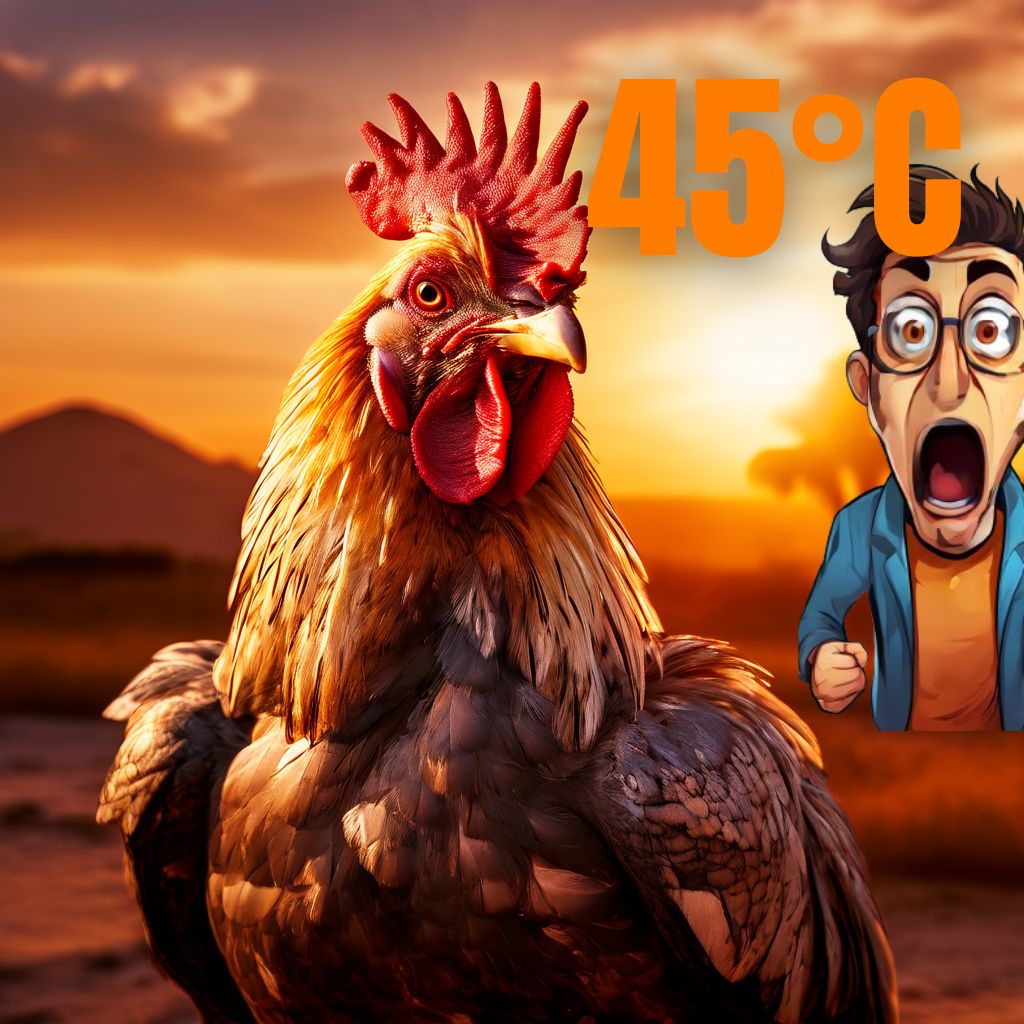The Ultimate Guide to Keeping Your Roosters Safe During Hot Weather in the Philippines
Roosters are an integral part of Filipino farming culture, whether for egg production, meat, or even cockfighting. However, they can be susceptible to heat stress when the climate gets too hot. With the Philippines experiencing scorching temperatures reaching up to 45 degrees Celsius, it’s crucial to take steps to ensure your roosters’ well-being, whether they are raised for farming, cockfighting, or as pets.

Heat stress is a serious condition that occurs when a rooster’s body temperature rises beyond its natural tolerance levels, typically above 41°C (106°F). This can happen when the surrounding temperature and humidity become too high for the rooster to effectively regulate its own body temperature through natural cooling mechanisms like panting and sweating.
Symptoms of heat stress in roosters include rapid, open-mouthed panting, lethargy, reduced feed and water intake, and in severe cases, organ failure and death. Older roosters, certain breeds like the Rhode Island Red, and those with underlying health conditions like respiratory issues or heart disease are most vulnerable to the dangers of heat stress.
Older roosters are more prone to heat stress.
Certain breeds, such as the Rhode Island Red, are more susceptible.
Underlying health problems like respiratory issues or heart disease increase risk.
High humidity, lack of shade, and overcrowding contribute to heat stress.
Fortunately, there are several effective measures rooster caretakers can implement to safeguard their birds during periods of extreme heat. The key is to focus on providing cooling methods, ensuring access to ample water, and creating an environment that allows roosters to naturally regulate their body temperatures.
Create a shaded area in your rooster’s coop or yard where they can escape the direct sunlight and cool off.
Ensure your roosters have access to plenty of fresh, clean water at all times. Consider setting up additional water sources like misting systems or wallowing pools.
If possible, utilize fans or air conditioning to circulate cool air and improve ventilation in the coop.
Offer cool, hydrating feeds and supplements like watermelon, cucumbers, or electrolyte-rich drinks to help replace fluids and minerals lost due to heat stress.
Keep a close eye on your roosters for signs of heat stress, such as lethargy, excessive panting, or standing with wings held out. Seek immediate veterinary assistance if you notice any concerning symptoms.
Maintaining excellent coop hygiene and avoiding overcrowding are critical. A clean, well-ventilated environment will prevent heat buildup and give roosters the space they need to regulate their body temperatures.
Following these guidelines can significantly reduce the risk of heat stress in your roosters, whether they are raised for farming, cockfighting, or as pets. By understanding the risk factors and taking proactive measures, you can ensure your beloved companions stay healthy and comfortable during the scorching Philippine summers.